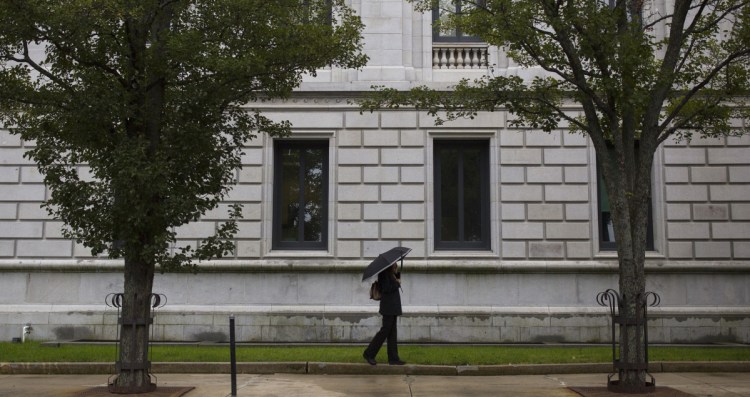The Maine Constitution tells us that the governor has broad unchecked powers to “grant reprieves, commutation and pardons.”
But who’s going to tell us how the governor chooses to use that power? According to state law, it’s none of our business.
That is an unacceptable situation that creates an opportunity for corruption, putting Maine out of step with most other states. The new Legislature and governor should pass a law that brings transparency to the use of this awesome unchecked power before it’s too late.
This all came to light in the closing days of the LePage administration, when news leaked that former state Rep. Jeffrey Pierce, R-Dresden, had received a pardon from the governor. Pierce lost his seat in the House after it was revealed during last year’s campaign that he had been convicted of felony drug trafficking 35 years ago, but continued to hunt with firearms that he was prohibited from possessing under state and federal laws.
It’s unclear what Pierce did to deserve this extraordinary favor. He is still liable for any firearms violations he may have committed and for possibly lying on applications for hunting licenses, which is also a criminal offense.
POSSIBLE VIOLATIONS
Pardons are typically given to people who take full responsibility for their crimes and refrain from future misconduct, but on at least five occasions between 2001 and 2012, Pierce registered game using firearms hunting permits issued by the state. He has publicly said that he did not know that as a felon, he was prohibited from possessing a gun.
But the path to his pardon is more troubling than the facts of his case.
The Governor’s Board on Executive Clemency rejected Pierce’s application at its November meeting, but LePage granted it anyway, as was first reported by Maine Public and confirmed by the governor’s office and Pierce. While that raises questions about whether Pierce deserved special treatment, the lack of transparency in the system is even worse. We know LePage pardoned 115 people during his eight years in office, roughly in line with his two predecessors, but the number of pardons is not the problem.
The problem is that pardons are confidential under the Maine Criminal History Record Information Act, something that makes Maine an outlier among states. The confidentiality is intended to give people receiving pardons a clean slate, without drawing attention to mistakes of their past. But confidentiality, combined with the governor’s unchecked power to pardon offenses, creates a situation where some future governor could sell pardons to the highest bidder, and no one would be the wiser.
NOT ABOUT SHAME
Criminal records can be embarrassing and can carry lifelong consequences, but public access to them is not a form of punishment – it’s a protection from government abuse.
No one should be arrested in secret. No one should be convicted of a crime without the evidence against them aired in public. We have good reason to keep those records public even if they are embarrassing. What should be the less embarrassing record of a pardon should also be public, so that future governors can be held accountable for their decisions.
In fixing this glaring gap in the law, lawmakers should also consider requiring the advisory board that reviews pardon applications for the governor to make public the agendas and minutes of their meetings as well as their recommendations. If a governor chooses to ignore the advice of the committee, either by issuing a pardon or refusing to issue one, the public ought to know. How else could they hold the governor accountable for a decision that can’t be appealed?
Send questions/comments to the editors.


